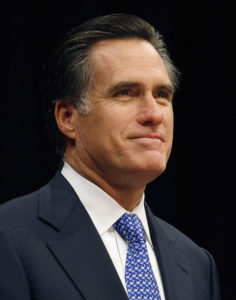Why Mitt Romney Was Lucky To Lose South Carolina Tonight
Newt Gingrich may have done Mitt Romney a favor by winning the South Carolina primary tonight.
If Mitt Romney had won, he would have become the de facto nominee earlier than any other presidential candidate in U.S. history, meaning that he alone would have had to endure more media scrutiny – for a longer period of time – than any of his predecessors.
Instead, he’ll now continue to share the media’s harsh glare with Newt Gingrich, a severely flawed candidate who will steal some of the limelight and help buffer Mr. Romney’s coverage. More stories about Mr. Gingrich’s angry ex-wife and messy leadership as House Speaker means fewer stories about Mr. Romney’s tax returns and Bain Capital.
If Mr. Romney had won tonight, he would have had to endure the media scrutiny alone for the next ten months. That would have been bad news for the Romney campaign for one reason: Mitt Romney does not wear well.
The more people are exposed to him, the more they dislike him. That’s not a personal view, but the conclusion of a Pew Research Center survey, which found that Mr. Romney is viewed favorably by only 33 percent of the public and unfavorably by 47 percent.
But now, Mr. Romney will have the advantage of appearing side-by-side in media stories with Mr. Gingrich, allowing voters to see a stark contrast between the two men.
Mr. Gingrich will be seen as an exciting politician who says unpredictable things that excite the base, traits that didn’t exactly rocket Pat Buchanan or Howard Dean to the nomination. Mr. Romney, who comports himself more like eventual nominees Al Gore, Bob Dole, and John Kerry, will likely be viewed as more presidential in comparison, likely helping to pave his way to the nomination. Of course, those three men eventually lost their general elections – but not before capturing their parties’ nominations first.
Assuming the wheels don’t fall completely off the Romney campaign, the comparison between the two men will help him and will shorten the length of time he has to endure the spotlight on his own.
I know some people will say a quick win would have been better for Mitt Romney since his campaign would have been able to save its money for a general election run. That’s true. But the bigger problem for Mitt Romney isn’t cash-on-hand. It’s likeability.
Note: For comparison’s sake, here are some of history’s earliest “clinch” dates:
- January 27, 2004: John Kerry wins New Hampshire, becoming the de facto nominee.
- February 1, 2000: Al Gore narrowly beats Bill Bradley in New Hampshire, becoming the de facto Democratic nominee.
- February 5, 2008: John McCain becomes the de facto nominee after his Super Tuesday wins over Mitt Romney and Mike Huckabee.
- February 29, 2000: George W. Bush finally becomes the de facto nominee after beating John McCain in Virginia and Washington.
COMMENTS? Do you agree or disagree with my analysis? Please leave your opinion in the comment section below, but remember the blog’s comment policy – no ad hominem attacks or pejorative name-calling will be posted.
Did you miss the 10 worst media disasters of 2011? Click here to catch up!

Wow. The more people get to know him, the less they like him? If your communications plan includes keeping your candidate out of the spotlight for as long as possible, you’re backing a loser. You’ve been at this for some time, tell us, when has such a strategy been successful for a political candidate?
Actually, this is a strategy that Mitt Romney has long employed. For example, he didn’t do any of the Sunday shows between March 2010 and December 2011 (although, admittedly, it’s too early to know whether that tactic has worked).
To answer your question more directly, Rick Perry stands as a good example during his gubernatorial runs. In 2010, he refused to debate his Democratic opponent. Now that we saw his debating skills, it’s easy to understand why. But he still won the election with rather ease.
Politicians do this all the time. If they’re lousy at media interviews, they’ll rely on paid advertising, planned speeches, interviews with friendly outlets, and third party surrogates to make their cases for them.
Interesting take though I would say the prolonged nomination fight gives the Democrats’ inevitable attacks on Romney some more credibility (they could be just dismissed as left wing lies out of hand otherwise), which is a lot more hurtful than a few more months of scrutiny.
As for playing prevent defense and avoiding weaknesses for the candidates, I don’t know about your point. Running for Governor of a state, even Texas, is a lot different from running for President. You can’t just duck uncomfortable situation. Mitt Romney has more avoided the media and awkward situations than probably any candidate ever and in the few minutes where he really interacts with voters, he almost always commits a gaffe of some sorts. His inability to relate to people is creating a lot of problems. Look how much Gingrich and Santorum talk off the top of their heads and yet largely avoid gaffes. I think Romney is going to have many more of those G HW Bush grocery store scanner moments.
Going forward, Mitt’s considerable weaknesses will continue, whether he’s center stage media wise or not.
He’s been running for president eight years, and it’s just not happening. Newt is going to give him fits, and there’s not much that Mitt can do about it.
Now, it’s on to Florida as we all watch the demands for Mitt’s immediate release of tax returns to swell and surge into a tsunami.